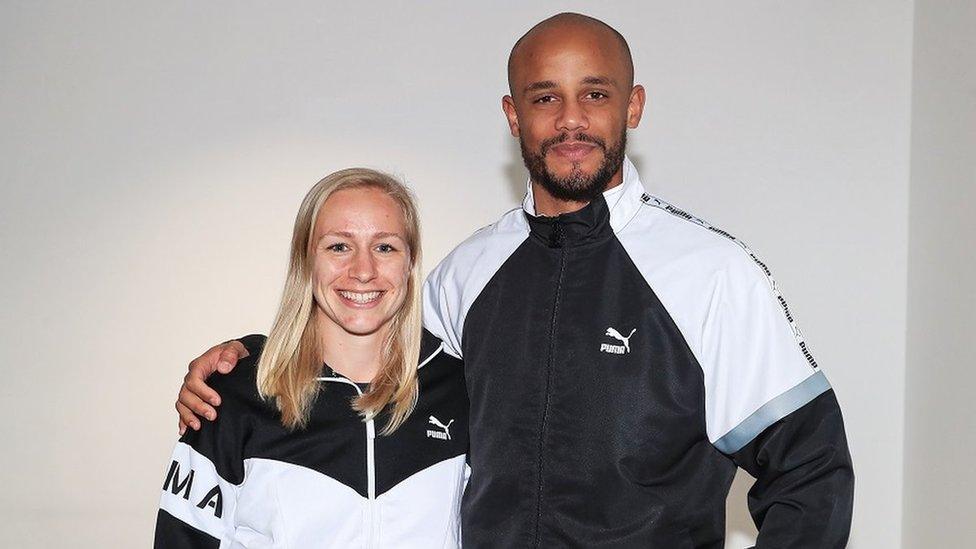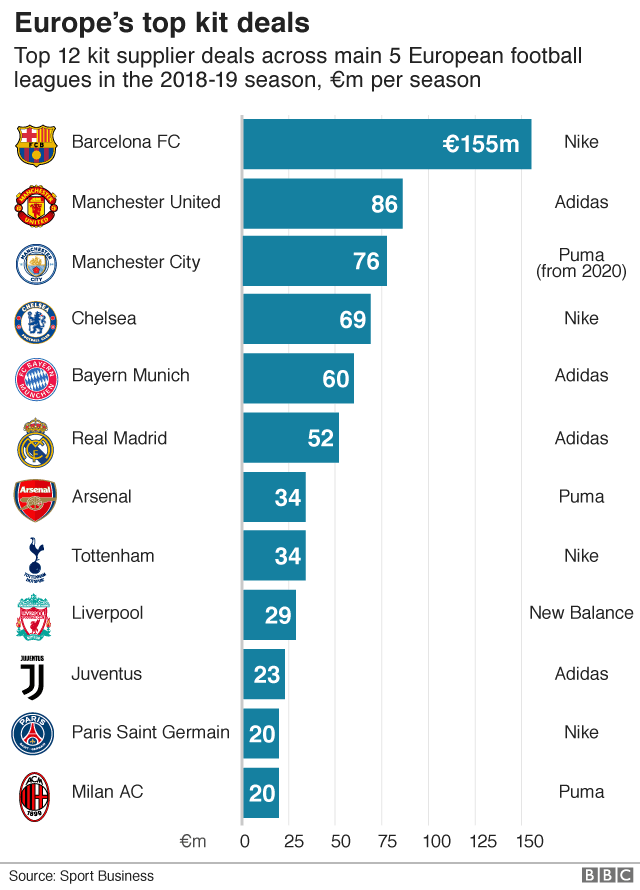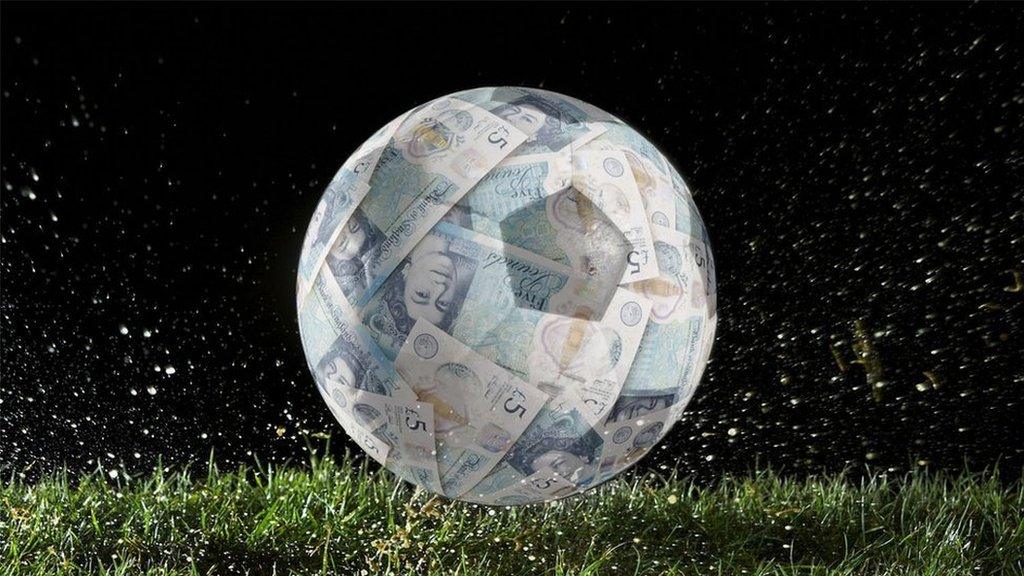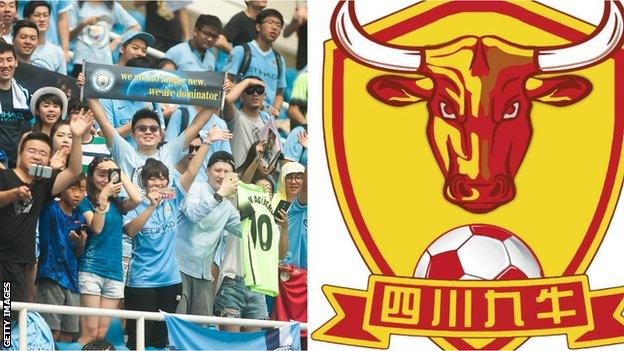Manchester City replaces Nike with Puma in kit deal
- Published

The deal covers men's, women's and youth teams at five clubs in the City Football Group
Premier League champions Manchester City have signed a long-term kit deal with Germany's Puma, replacing their current agreement with Nike.
The size of the deal was not disclosed, but media reports suggest it could be worth up to £65m a year for 10 years.
It will come into effect in July and also covers sister clubs in Australia, Spain, Uruguay and China.
Puma chief executive Bjorn Gulden said it was the biggest deal his firm had ever done.
He said Puma wanted to "maximise on-field performance as well as football culture, in areas such as music, gaming and fashion, to connect and inspire the fanbase of each team".
Mr Gulden said the deal with City included a fixed retainer, a bonus based on sporting achievements and a royalty element.
Ferran Soriano, boss of the club's holding company City Football Group (CFG), said: "It is a historic day for us. What we are doing has not been done before. It is an unprecedented partnership."
Mr Sorriano said the sponsorship agreement would "reset the model for sports partnerships on a truly global scale".


Sports sponsorship expert Nigel Currie told the BBC that the deal reflected the changing nature of sports sponsorship and the increasingly global nature of the Premier League's appeal.
He added: "Merchandising is vital. It's not pure sponsorship, it's a commercial deal. It will be all about replica kit sales and creating a range of merchandise for the fashion world."
The other clubs covered by the deal are Melbourne City, Girona, Club Atletico Torque and Sichuan Jiunjiu.
The Chinese club was added to CFG's stable earlier this month.
The deal covers men's, women's and youth teams at every club.
Other big sponsorship deals in English football include Manchester United's tie-up with Adidas, which is reportedly worth £75m a year, and Nike's agreement with Chelsea.
Puma already has deals with a number of top European clubs, including Borussia Dortmund, AC Milan and Marseille.
- Attribution
- Published27 February 2019

- Attribution
- Published20 February 2019
